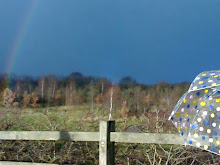
Hmmm where to start with this one... Truthfully I don't know a lot about game engines so I will try and write down what I have learnt about them. It is more economically viable to reuse a game engine to create a different game.
As I recall, Zelda Link's Awakening used the game engine for 'Kaeru no Tame ni Kane wa Naru' (or in English- 'For the Frog the Bell Tolls'), which is apparently shares mutual game design elements, and there are also references in the Zelda game - Richard, one of the characters from the previous game makes an appearance, and is surrounded by frogs which I guess makes sense seeing as they were quite a major role in the game. Another indication of the game is that the music played in Richard's Villa is a remixed version of the Kaeru no Tame ni Kane wa Naru overworld theme.

Moving on from Zelda ramblings, for sequels at-least reusing a game engine is a valuable resource for producing it quickly and easily.
According to wikipedia :
'Modern game engines are some of the most complex applications written, frequently featuring dozens of finely tuned systems interacting to ensure a finely controlled user experience. The continued refinement of game engines has created a strong separation between rendering, scripting, artwork, and level design. It is now common (as of 2003), for example, for a typical game development team to have several times as many artists as actual programmers.'
Which is good news for me as an aspiring game artist, the more jobs that are available the better ;)
Proprietary technology - ' Companies that are able to develop useful proprietary technologies in-house are rewarded with a valuable asset: they can either use it exclusively or profit from the sale of licensing of their technology to other parties.' I think industry standards won that debate, as there is less of a risk factor.
Additive and subtractive environments refer to the way in which the 3d world is created. In additive, there is a void that must be filled in order to produce a landscape for the world. The problem with this is it is prone to ‘leaks’, which is basically a hole in the game. The opposite of this is the subtractive method, where the designer takes an infinite solid and picks away at it until there is a space for your character to exist in.
On a separate note, I remember when I was in Japan and was on the coach on the way to the hotel and got really excited when I saw the Capcom factory just because I recognised from one of my games how cool am I... haha XD
See ya ~Emi ^o^









